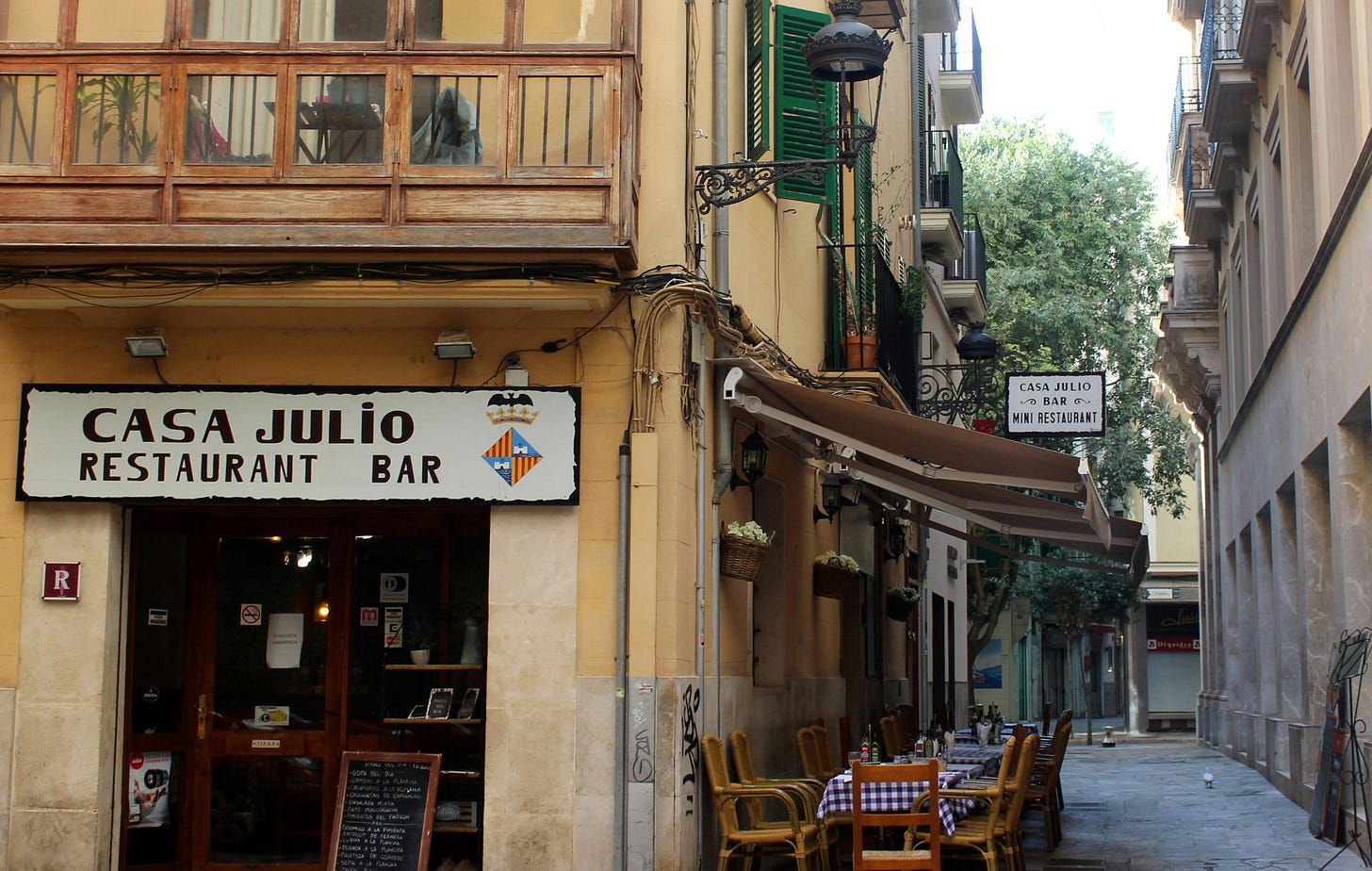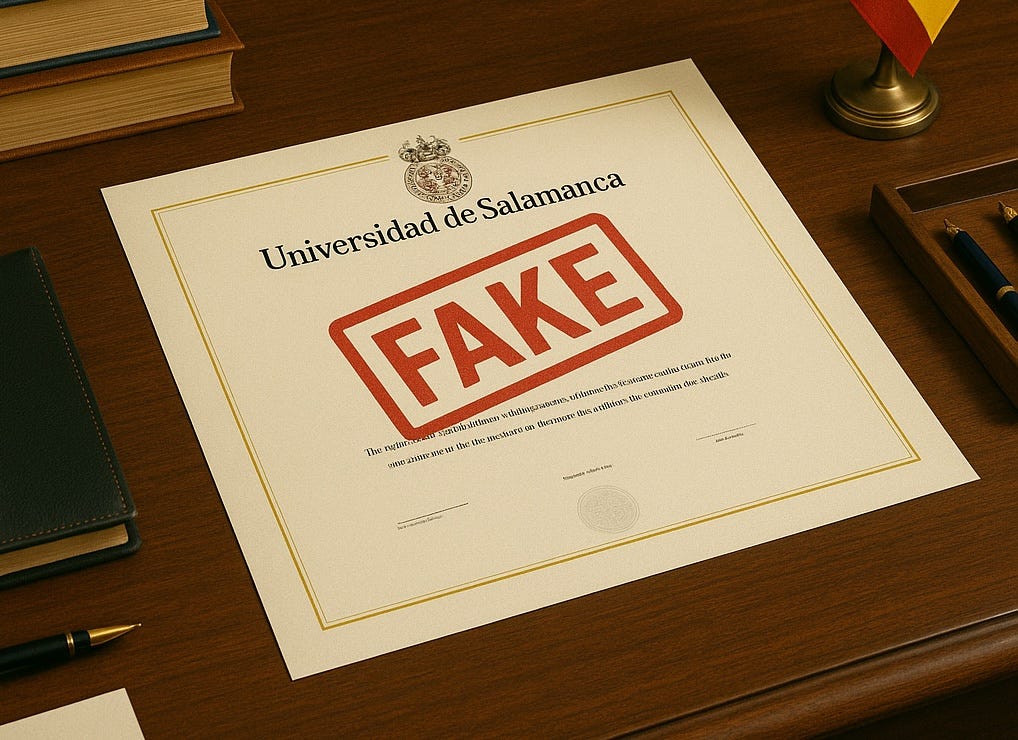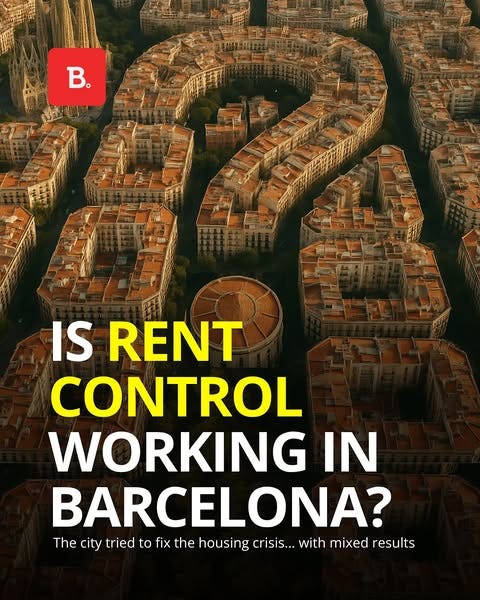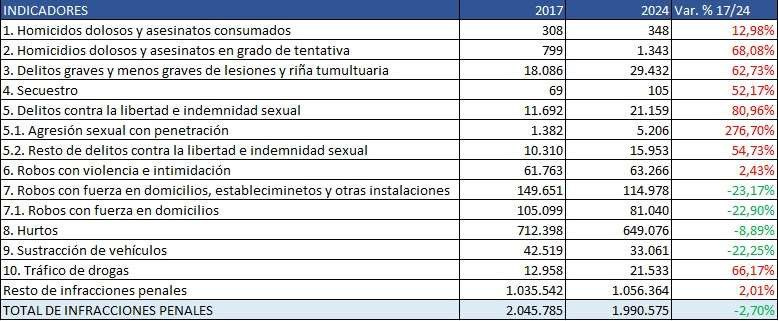🎓 Spain Politicians Fake Their Degrees
Plus: Sánchez just won't leave, that plane incident, and have we hit peak tourism?
Madrid | Issue #113
🇪🇸 The Bubble is Spain's #1 English-language, best-selling newsletter. We offer paid subscriptions, and we’d be thrilled to have your support!
School’s out forever
🧑🎓 Spanish politicians get all righteous about their degrees right before summer
The Summer Scandal: Fake Degrees 🎓. Welcome to silly season—that final, overheated week before Spain shuts down. And you know the rule: no vacation until we have a dumb scandal to chew on. This year? Résumé fraud. Specifically: politicians faking or exaggerating their degrees, which, in Spain, is apparently just terrible.
First, though, let us digress. In many (most?) countries, you define yourself by what you do—like, journalist, private equity trader, poet, contract assassin.
But here… Your degree is your ID and what allows you to apply for certain jobs. We can’t tell you how many times we met someone in public relations who said, “I’m a journalist too!” and when we replied, “No, you’re not,” they said, “But I have a degree in journalism.” The degree, more than your job, is the thing, right?
That makes degrees more important. As in, if you can only apply for certain jobs if you have a specific degree, or your pay grade depends on the degree you have—licenciatura o “master’s”?—that makes résumé inflation not just tempting, but career-critical.
Well, turns out that faking or inflating your resume here can be very damaging. And it’s also why this week’s battle of the embellished currículums is a refreshing development—for once, we’re not talking about politicians caught with bags of cash.
🧐 First domino falls. It all started with Noelia Núñez, a rising star in the center-right PP and one of its most visible faces on social media.
RisingFalling star. Núñez, 33, was a party vice-secretary, an Ayuso ally, and a regional MP—until last week, when she quit everything after it emerged she hadn’t actually finished any of the degrees she’d purportedly earned (Law, Political Science, English Philology).
Sorry seems to be the hardest word. After becoming a “most hated person” on X, Núñez posted a message admitting “errors” in her curriculum vitae and insisting there was “no intention to deceive.” She then quit.
So very moral. The PP spun it as moral high ground—proof they hold higher standards than the PSOE. Because why the hell not.
Domino effect. In the slowest news week ever, the spotlight quickly turned to everyone else’s CVs. Miguel Tellado (PP’s secretary general) challenged Transport Minister Óscar Puente (PSOE) to “show his master's.” (Which is weird but at least less fraught than “I’ll show you mine if you show me yours.”) Tellado accused Puente of inflating a “non-accredited title” from some no-name political foundation into an actual degree.
Puente then hit back by demanding Tellado “show his own” degrees—and mocking the PP leader for having “pulled a Noelia” himself. The crime? Puente pointed out that PP websites had previously described Tellado as both a journalist and a political scientist, even though he didn’t have a degree in journalism (*gasp*)
Dude, it’s a J-O-B. Tellado replied that he is a political science graduate and had worked as a journalist, even if he wasn’t formally trained as one (True: you don’t need a J-school degree to be a journalist). Tellado still decided to delete it from the PP website, because…?
PP strikes back (for real this time). Then this week, the Populares got lucky. A report by Valencia’s Anti-Fraud Agency found that José María Ángel Batalla, a veteran socialist and high-ranking official in Sánchez’s government, may have falsified a university diploma in the 1980s to get a public job. The report found:
He never finished his degree at the University of Valencia.
The “diploma” in his personnel file doesn’t match any university records. The university says that the degree, which he theoretically got in 1983, didn’t exist until 1990.
His official bios—some citing degrees in History and a master’s from ESADE—don’t hold up.
Batalla first denied all of this and then said he would sue the Anti-Fraud Agency. He’s now being investigated not only for academic fraud, but for potentially receiving inflated salaries and promotions based on a title he didn’t earn.
The sad part? He’s less than a year away from retirement, and people are asking him to return all his earnings since he got the job.
Edit: Moments after sending this newsletter, we learned Batalla was announcing he was resigning from his post effective immediately.
It’s all part of that time-honored tradition. It’s July. There’s no legislation, so people dig up dumb scandals. Politicians pretend to be shocked. The press eats it up (what else are we gonna write about?). And the public? Mostly rolls its eyes at the whole charade.
And now…to the beach! 🏖
More news below. 👇👇
🔔 But first, check out our Instagram account
If you’re not following us on Instagram yet, you’re missing out. We’re posting exclusive content with our collaborators across Spain, breaking news updates, and pop culture coverage. Click on the post above and come hang with us!
💬 Five things to discuss at dinner parties
1. ✈️ Vueling removes Jewish kids from a plane— claims of antisemitism and 9/11 theories follow
What started as a disruptive flight from Valencia to Paris has turned into an international media firestorm—with accusations of antisemitism, denials of discrimination, and (somehow) a cameo from 9/11.
What the hell happened? It started on July 23, when 47 French Jewish teens and four adult supervisors were booted from a Vueling flight to Paris. A viral video (see above) showed a female chaperone being dragged off the plane by Guardia Civil officers.
Vueling and Spanish authorities say the group ignored safety instructions, messed with emergency gear, and disrupted the pre-flight demo. After repeated warnings, the captain called in security and had them removed.
Guardia Civil and passengers say no one was arrested—the woman in the video was just restrained after refusing to cooperate.
Uh-oh. Enter the internet. Israeli media and X accounts—including Israel’s Minister of Combating Antisemitism, Amichai Chikli—offered a very different version.
According to that version: the woman was “arrested and beaten,” the kids were just “singing Hebrew songs,” and a crew member allegedly called Israel “a terrorist state” (which Vueling denies). Chikli called it one of the “most serious antisemitic incidents” in recent memory.
Smooth move. Spain’s Transport Minister, Óscar Puente, weighed in by calling the teens “Israeli brats” on X—then deleted it (because, just to clarify: Jewish ≠ Israeli). France, meanwhile, asked the airline to explain itself.
Let us remind you that things between Israel and Spain right now are not great —especially since Prime Minister Pedro Sánchez has publicly accused Netanyahu’s government of committing genocide in Gaza.
Then came the plot twist. Social media users and Chikli unearthed an old photo of the pilot, Iván Chirivella—who, yes, once trained two of the 9/11 hijackers. (Sort of.)
My life with Al Qaeda. In 2003, Chirivella even wrote a memoir—Innocent Accomplice—about unknowingly training Mohamed Atta and Marwan al-Shehhi, the 9/11 hijackers who flew into the Twin Towers, during his time as an instructor at Jones Aviation in Florida.
The FBI later questioned him, and he remains referenced in the official 9/11 Commission Report, in which he describes the terrorists as aggressive, argumentative, and obsessed with flying large jets.
In his book. He said the experience haunted him, claimed he had no idea what they were planning, and donated the profits to a Spanish terrorism victims fund. He’s been back in Spain ever since—flying for Vueling.
Fanning the flames. Chikli seemed to suggest the pilot was somehow sympathetic to terrorists—because why else mention 9/11?
This was echoed by some Spanish media outlets that ran a headline that, well, looked bad.
And of course, there’s a lawsuit. Club Kineret, the Parisian org that organized the trip, says Vueling is lying and is filing charges.
2. 🥸 Pedro Sánchez isn’t going anywhere—even if no one wants him to stay
Our favorite political holiday? The PM’s “school’s out” speech in late July—because once it drops, we can hit the beach knowing nothing’s gonna happen for a month.
Pedro SánchezMr. Handsome gave that speech Monday, so… 🥳! He was glowing: “One of the most prosperous periods in our democratic history,” “We’ve passed 86% of the laws we’ve proposed,” etc.But the cards are down halfway through the legislature. Three close allies are knee-deep in corruption scandals, his parliamentary partners are jumping ship (Podemos calls the legislature “dead”), and even his beloved EU is scolding him—for stalling a bank merger, doing too little to fight corruption, and pushing through the Puigdemont amnesty.
Still, he’s not going anywhere. On the budget, he said he’d present one for 2026, but could govern through 2027 — when elections must be held — without one. “I don’t need no stinkin’ budget. I am Superman,” he said.
Actually, no. That’s not true. What he really said is that the NextGenerationEU funds, created to help Southern Europe recover post-COVID, are a “fantastic tool” to fill the holes left by Spain’s outdated budget: "They are another budget, another lane."
Slight hiccup. “The EU warns that European funds cannot finance regular day-to-day spending, but rather extraordinary spending or spending linked to structural reforms and investments,” 20minutes writes.
But he’s used to this. Sánchez has been governing on the 2023 budget, passed by his last government. Not that he used to think that was okay. In 2018, he said to then-PM Mariano Rajoy, “A government with a budget can’t do anything,” and in 2019, when he called snap elections after ERC tanked his budget, he said, “Call me old-fashioned, but you can't govern without a budget." 🤔
Maybe that’s why he’s staying. A new poll by SocioMétrica (via El Español), shows his popularity at 23.3% — even below Vox’s Santiago Abascal 😱— and the PSOE getting just 99 seats (miles from a majority) if elections were held today. It’s just a poll, sure. But… would you call elections if you were Mr. Handsome?
Oh, and Alberto Nuñez Feijóo also said something. Feijóo, the dull but dutiful boss of the opposition PP, announced a “list of Sanchista laws to overturn” in his own summer break speech: "How well he governs without a majority, without his word, without a budget, and without shame. He has only corruption, bribes, and wiretaps."
Sanchéz mocked him. Feijóo was, he said, a “broken record” for going on about early elections. And Feijóo is truly far from a great speaker. But the sad twist for Mr. Handsome? Right now, a lot of voters may prefer the broken record to him.
3. ⚖️ Spain’s most polarizing custody battle gets even nastier
The long-running Juana Rivas saga is back in the headlines—not just because she was forced to return her 11-year-old son to his father in Italy, but because that father is now set to face trial for allegedly abusing both his kids.
A quick recap. In 2009, Rivas accused her then-partner, Italian national Francesco Arcuri, of domestic violence. He was convicted and sentenced to three months—but the couple later reconciled, moved to Sardinia, and had a second child.
Years later, after another breakup, Rivas fled Italy with both children. Arcuri accused her of abduction—and Spanish courts eventually agreed. She became a national symbol for many feminist organizations.
In the end, she gave in. The kids were sent back to live with their father, and in 2018, Rivas was convicted of abduction, sentenced to five years (later cut to 2.5), and stripped of parental rights.
She was pardoned in 2021 and released. Her older son, Gabriel, now an adult, came to live with her in Spain.
Far from over. The problems started again when Rivas’ younger son, Daniel, came to be a tug-of-war between Spain and Italy.
In 2024, he was authorized to travel to Spain to spend Christmas with her. But after the holidays she refused to send him back, citing new allegations of abuse.
A Spanish court blocked his return—for a time. But ultimately ordered her to surrender him on July 25, 2025.
Plot twist: Italian prosecutors have now charged Arcuri with abusing both children, based on testimony, medical reports, and photo evidence.
There are accusations of slaps, chokeholds, threats to kill them, verbal degradation, and psychological manipulation.
Last week, Daniel was supposed to meet his father to fly back to Italy, but it was canceled after the child became visibly distressed and repeatedly said he was afraid of his dad.
Things got worse when Rivas had a panic attack and left in an ambulance. Officials postponed the handover and proposed new, controlled conditions.
On Friday, Daniel was finally handed over. He and his father flew back to Italy.
Now, Italy faces two separate proceedings:
A criminal trial for alleged child abuse, which could drag on until 2027.
A civil appeal by Rivas, backed by prosecutors, to overturn Arcuri’s custody.
But Rivas is also in trouble. Granada’s courts have strongly criticized her, saying the decision to retain her son again was a deliberate act of child abduction.
The kicker? If Italy’s high court sides with Rivas, custody goes back to square one. But if both parents are convicted (Arcuri for abuse, Rivas for abduction), a third-party guardian could take over until Daniel turns 18 in 2032.
4. 👮 Is Spain getting more dangerous—or does it just feel that way?
Spain feels safe. In the PM’s summer break speech, Pedro Sánchez celebrated Spain’s streets, as in: "We have the safest streets, I won't say in the world, but almost..." We know that there’s still crime in Spain, of course, but compared to cities in the U.S., we get his drift.
The cops weren’t buying it. The biggest Policía Nacional union, JUPOL, hit back hard, however: “The Interior Ministry celebrates a supposed 2.70% drop in the total number of criminal offenses, but deliberately ignores the fact that the most serious crimes and those that cause the most social alarm are growing uncontrollably.”
JUPOL got some friends. While the police union’s statement was largely ignored in the big papers, the right-wing press—like, say, La Razón—ran with it. JUPOL, which was formed to protest for higher wages and pensions for cops, is favorite on the right. And hating on Sánchez is a fave game there (and for a lot of others too, tbh).
We were intrigued. So we dove into Interior’s data (above), and found that everyone’s right—and wrong—simultanously.
Numbers 🔽. Yes, crime overall is down 2.7% since 2017 👏—especially robbery and petty theft.
Numbers 🔼. But the worst crimes? Way up. Murders rose 13% from 2017 to 2024. Rape: up 277%. Drug trafficking also jumped.
But it’s not that simple. Spain’s population has grown about 4.6% since 2017—so the murder rise looks less dramatic (though still bad). But that doesn’t explain the explosion in rape cases. One theory: greater awareness and support may have encouraged more victims to come forward. Or maybe there have been a lot more sexual assaults. Or... something else?
Still, it feels more violent sometimes. Two recent cases dominating the headlines are pure nightmare fuel.
Burning alive. In early June, several people set fire to a house east of Madrid—while a disabled woman and her son were inside. Both survived, barely. The case turned out to be the horrifying peak of years of abuse by neighbors who mocked the pair for being poor. It started with Halloween eggings. It ended in arson.
Camera time. 🎥 Police installed cameras—and didn’t have to wait long. Footage showed three separate attacks: in one, two men douse the house with bleach; in another, they tear up cardboard covering the windows and throw bottles inside; in the last, they chase the disabled woman down the street, pelting her with bottles. The police made the arrests—and added a hate crime: aporophobia, or prejudice against the poor.
This one might be even worse. At a family-owned clothing shop in Molina de Segura (Murcia), 65-year-old Felipe Hernández was in his office when his son and daughter stormed in. The son began beating him—over and over. The daughter, a doctor, watched... then walked out. Minutes later, the two fled, and Felipe stumbled into the street, where he collapsed and died. His widow and family filed charges, alleging years of domestic abuse and theft from the children: “Felipe feared his kids.”
Who are these people—and what’s going on?
5. 🏖️ Overtourism? Those were the days (joking!)

Foreign tourist numbers have gone berserk since COVID, so much so that some even thought Spain might overtake France this year as the world’s most visited country. But lately something funny is happening. (Funny as in “curious” — not as in “haha”.)
Let’s talk about Mallorca. A series of recent reports paint an unexpected picture: half-empty terrazas and increasingly gloomy waiters across the island tourist mecca.
“I’ve been here nine years and I’ve never seen it this empty. It’s sad,” says one server in Palma.
“These days, they ask you for an orange juice and share it between five people,” says another, in Sóller.
“Before we had lines to get a table during summer. Now we close with half the terrace empty,” said a Palma restaurant owner.
So what’s the dealio? Prices. Inflation in Spain overall has stayed pretty tame, but in tourist zones, it’s gone off the rails. In the Balearics, prices at bars, restaurants and hotels are up 5% since last year—and 30% since pre-COVID 2019, according to the INE stats agency.
The fallout. British and German tourists—who you may mock for their sunburns and sangría habits, but who power the coasts—are reportedly cutting back. Fewer flights, fewer nights out, and fewer jarras de cerveza. Industry group CAEB Restauración says average restaurant sales are down 6–8%, and some are down 30%. “In 80% of establishments, sales will fall this year,” CAEB’s Juan Miguel Ferrer told El Diario.
The joke in Mallorca? It’s cheaper to fly to Bali (yes, as in Indonesia) than to stay in Spain. Problem is… it’s kinda true. Once you factor in flights and daily spend, Spain’s becoming a luxury destination for its own people. Unless you’re heading north to the breezy, under-the-radar beauties of Galicia, Asturias, and Cantabria. (Damn, wait, don’t tell anyone. 🤫)
You’ll be happy to know. For now, tourism—Spain’s engine, at 13% of GDP—may be showing cracks—but the economy hasn’t noticed—yet. Spain grew a strong 0.7% last quarter, boosted by construction (read our deep dive on Spain’s booming real estate sector). And the IMF expects Spain to grow 2.5% this year, the most among developed economies. Then again, with the Orange Menace around, there’s still time for a crash! 🎃
🙏 Once again, please remember to share this newsletter with your friends on social media. The more we grow, the more information we’ll be able to offer each week.
We’ll be back next week with more.






